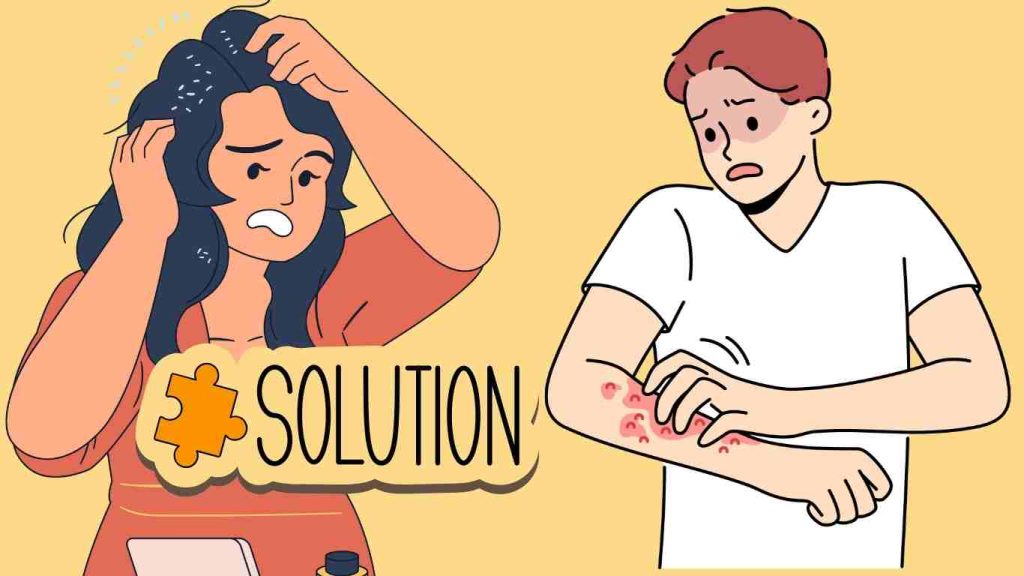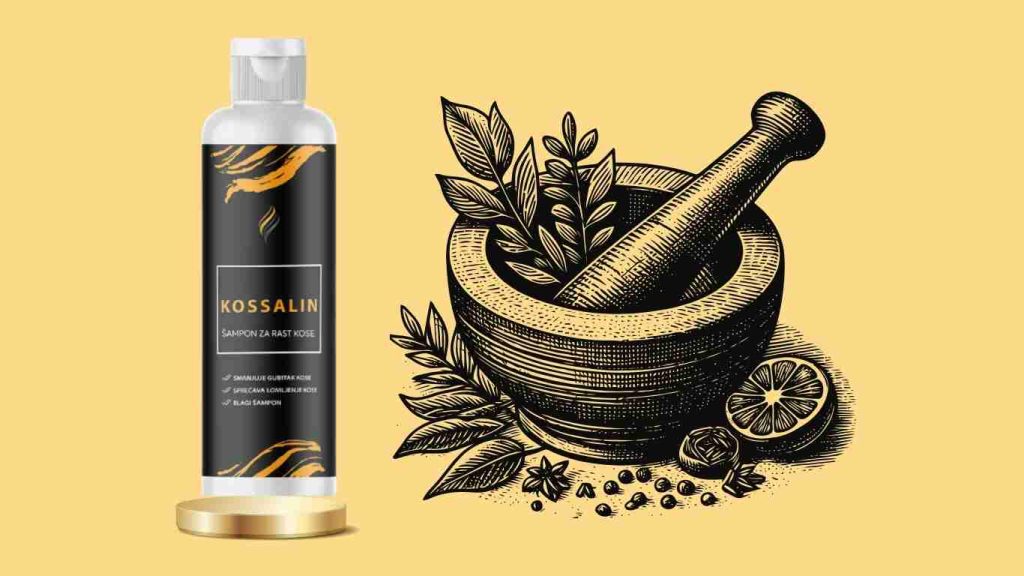Dandruff and an itchy scalp can be both embarrassing and uncomfortable, affecting nearly half of the global population. Fortunately, you don’t have to rely on expensive shampoos or harsh chemicals. There are effective home remedies for dandruff and itchy scalp that can help soothe irritation, reduce flakes, and restore scalp health naturally.
This article explores 10 proven solutions—from using tea tree oil to easy scalp-moisturizing treatments—all designed to relieve dryness and itching. Many common triggers like dry skin, oily scalp, or an overgrowth of Malassezia yeast can lead to dandruff. Understanding these causes is key to finding the right treatment.
Read on to discover simple, effective home remedies for dandruff and itchy scalp—each with step-by-step instructions to help you achieve a flake-free, healthier scalp from the comfort of your home.
Why Dandruff and Itchy Scalp Occur
Dandruff is essentially a flaky scalp condition where dead skin cells shed more rapidly than normal. This often happens due to scalp inflammation or an overgrowth of Malassezia yeast living on the scalp. Common triggers include dry weather, oily skin, hormonal changes, and stress.
The key to remedying dandruff is addressing these root causes. For example, regular cleansing and gentle exfoliation can remove excess flakes, while ingredients like tea tree oil or neem can help balance natural oils and reduce yeast. In the sections below, we explore home remedies for dandruff and itchy scalp, focusing on natural, gentle treatments and scalp health tips to calm inflammation and relieve itching.
10 Proven Home Remedies for Dandruff and Itchy Scalp
Tea Tree Oil for Dandruff
Tea tree oil is one of the most effective natural dandruff treatments because of its powerful antifungal and anti-inflammatory properties. It helps reduce Malassezia yeast overgrowth, which is a common trigger for dandruff and scalp itch. Clinical studies have found that using a 5% tea tree oil shampoo can significantly reduce dandruff severity compared to a placebo, often within just a few weeks of regular use. Tea tree oil is also a common ingredient in many anti-dandruff shampoos.
How to use: Massage a few drops of tea tree oil into your shampoo or dilute it with a carrier oil (like coconut or jojoba oil) before applying it to your scalp. Then: – Work the mixture into your scalp and hair for 2–3 minutes. Gentle massaging helps boost circulation and exfoliate dead skin. – Rinse thoroughly and repeat this 2–3 times per week. – (Optional) For very itchy or inflamed scalps, leave the tea tree oil mixture on for an extra 5 minutes before rinsing.
Be careful not to apply undiluted tea tree oil directly to the scalp, as it may irritate sensitive skin. Always start with small amounts and consider doing a patch test on your arm to check for any allergic reactions. With consistent use, tea tree oil offers quick itchy scalp relief and restores a healthy, flake-free scalp over time.
Apple Cider Vinegar
Apple cider vinegar (ACV) is a popular DIY dandruff remedy thanks to its acidity and antimicrobial properties. ACV can help loosen dead skin cells, restore the scalp’s pH balance, and flush away dirt and oil that trap yeast and flakes. While scientific evidence is limited, many people report that regular ACV rinses greatly reduce scalp flaking and itching over time.
How to use: In a spray bottle or bowl, mix equal parts Apple Cider Vinegar and water. After shampooing: – Apply the mixture evenly to your scalp and hair, using a spray bottle or gently pouring. – Massage the rinse into your scalp for better coverage. – Let it sit for 5–10 minutes (or even overnight under a shower cap) to allow the acids to work through the skin. – Rinse thoroughly with water.
Use this rinse 1–2 times per week. You can also heat the mixture slightly (warm, not hot) to increase blood flow. Always dilute ACV: full-strength vinegar will burn the scalp and hair. If you feel stinging or burning, dilute the solution even more or rinse off immediately. As an easy anti-dandruff home solution, diluted ACV is gentle, natural, and can leave your scalp feeling refreshed.
Coconut Oil for Scalp Health
Coconut oil is a top scalp moisturizing home remedy and is often considered the best oil for dandruff because of its unique antifungal and hydrating properties. Its lauric acid content (monolaurin) penetrates the scalp and hair to soften stubborn flakes and moisturize dry, itchy skin. Regular use of coconut oil can improve scalp barrier function and reduce inflammation, promoting healthier hair and less dandruff. It’s also rich in nutrients (vitamin E, iron, and fatty acids) that can strengthen hair and add shine.
How to use: – Warm 1–2 tablespoons of cold-pressed virgin coconut oil until it liquefies. – Massage the oil thoroughly into your scalp and hair, coating any flaky or dry areas. A gentle head massage for 5–10 minutes can boost circulation. – Leave the oil on for at least 30 minutes, or overnight under a shower cap for a deep treatment. – Wash and rinse your hair as usual with a mild, sulfate-free shampoo if possible.
Repeat this treatment 1–2 times per week. For extra anti-dandruff power, mix in a few drops of tea tree or peppermint oil. Coconut oil can sometimes clog pores if overused, so adjust frequency to your scalp’s response. In most cases, this simple natural treatment provides deep moisturization and noticeable relief from flaking and itching within a few applications. Other plant-based oils, such as olive oil or almond oil, can also be used in a similar way to soothe and hydrate the scalp if coconut oil isn’t on hand.
Aloe Vera Gel
Aloe vera is a soothing natural remedy for an itchy scalp. Its cooling, anti-inflammatory properties can calm irritation and redness, while its vitamins, minerals, and enzymes help hydrate the skin. Aloe vera also contains proteolytic enzymes that gently exfoliate dead skin cells and may even help fight the yeast that contributes to dandruff. By moisturizing and healing the scalp, aloe provides quick relief when your scalp feels dry or itchy.
How to use: Extract fresh aloe vera gel from the plant (or use store-bought pure gel) and apply it directly to your scalp. Massage gently for a minute or two. – Leave the gel on for 30–60 minutes, then wash it out with your regular shampoo. – (Optional) For extra nourishment, mix aloe gel with a few drops of coconut oil or a teaspoon of honey. Apply this homemade mask and leave it on for 30 minutes before rinsing. This will soothe, moisturize, and further reduce flakes. – Rinse thoroughly and follow with a moisturizing conditioner if desired.
Repeat this treatment 2–3 times per week. Aloe absorbs quickly into the scalp. If it leaves your hair feeling a bit sticky, just use a normal shampoo afterward. Many people find that a single aloe treatment can calm itching immediately, making it an excellent DIY remedy for acute scalp irritation.
✅ Kossalin Shampoo – Say STOP to Hair Loss!
Tired of thinning hair and constant shedding? Discover Kossalin Shampoo, the powerful solution designed to nourish your scalp, strengthen roots, and restore healthy, full-looking hair – naturally.
💧 Key Benefits:
✔ Reduces hair fall from the very first wash
✔ Strengthens hair follicles and promotes new growth
✔ Enriched with natural extracts and essential nutrients
✔ Suitable for all hair types – men and women
Don’t let hair loss control your confidence.
👉 Try Kossalin today and feel the difference.
Baking Soda Scrub
Baking soda (sodium bicarbonate) is a gentle exfoliant that can help slough off dead skin cells and absorb excess oil. As a natural remedy for dandruff, it acts as a flaky scalp remedy, removing dry patches and reducing itch. Its alkaline nature may help neutralize scalp pH after applying other acidic treatments. Some people even use baking soda as a dry shampoo between washes to keep oil at bay. However, because it is so alkaline, it must be used carefully.
How to use: – Wet your hair thoroughly and make a paste of baking soda and water (about a 1:1 ratio). – Gently massage the paste into your scalp for a minute or two, focusing on very flaky areas. – Let it sit for 1–2 minutes (no longer, to avoid irritation), then rinse thoroughly with lukewarm water. – After rinsing, use a gentle shampoo or an apple cider vinegar rinse to restore the scalp’s natural acidity and prevent dryness.
Use this scrub once or twice a week at most. Overuse can dry out or irritate the scalp. If your scalp feels very tight after rinsing, follow with a hydrating conditioner or natural oil. Many users report that baking soda instantly lifts visible dandruff, leaving the scalp feeling smoother and more balanced.
Lemon Juice Treatment
Fresh lemon juice is an effective natural dandruff treatment thanks to its acidity and vitamin C. Its citric acid can break down scales and reduce excess oil on the scalp, and its antimicrobial effects help kill bacteria or fungi. However, lemon can be drying, so it is best used in moderation or mixed with hydrating ingredients.
How to use: – Mix the juice of half a lemon with 1/2 cup of warm water (or add a teaspoon of honey for extra moisture). – After shampooing, pour or spray the mixture onto your scalp and hair. – Massage it in to ensure full coverage, then let it sit for 3–5 minutes (no longer, to avoid dryness). – Rinse thoroughly with cool water and follow with conditioner.
You can also add a few drops of lemon juice to your regular shampoo. Use this lemon rinse once a week. Be careful not to get lemon juice in your eyes or on irritated skin—it will sting. Also avoid sun exposure on the scalp immediately after using lemon, as it can increase sensitivity. When used properly, lemon provides quick itchy scalp relief and adds shine by removing dull buildup.
Yogurt and Honey Hair Mask
A soothing homemade hair mask of yogurt and honey can help combat dandruff and deeply moisturize the scalp. Yogurt’s lactic acid gently exfoliates dead skin cells and its live cultures (probiotics) may balance scalp microbes. Honey is a natural humectant and antibacterial ingredient that can hydrate and cleanse the scalp. Together, they form a powerful DIY dandruff remedy similar to a professional scalp treatment.
How to use: – Use plain, unsweetened yogurt (Greek yogurt is even thicker). Mix 1/2 cup yogurt with 1 tablespoon raw honey. – (Optional) Add a teaspoon of lemon juice or a few drops of tea tree oil for extra effectiveness. – Apply the mixture to your scalp and hair, coating flakes and dry areas. Gently massage it in. – Cover your hair with a shower cap or warm towel and leave on for 30–45 minutes. – Rinse and shampoo your hair normally.
Use this mask once a week. This homemade hair mask for dandruff will leave your scalp feeling refreshed and your hair soft. Since yogurt can also add moisture to dry strands, you may find your hair easier to manage and less frizzy after regular use.
Fenugreek Seed Paste
Fenugreek seeds are a time-honored natural dandruff treatment used in Ayurvedic tradition. When soaked and ground into a paste, fenugreek releases proteins, vitamins, and nicotinic acid that nourish the scalp and hair. Its antifungal and anti-inflammatory compounds can help reduce flakiness and control scalp irritation. Fenugreek is also known to strengthen hair roots and reduce hair fall, which often accompanies severe dandruff.
How to use: – Soak 2 tablespoons of fenugreek (methi) seeds in water overnight. – In the morning, drain and grind the seeds with a little fresh water into a smooth paste. – (Optional) For extra conditioning, mix the paste with a tablespoon of yogurt or olive oil. – Apply this mixture to your scalp and massage gently. – Leave it on for 30–40 minutes, then rinse thoroughly and wash your hair.
Use this treatment once a week. Fenugreek paste has a strong smell, so you may want to add a few drops of essential oil or shampoo well afterward. Many users find that regular fenugreek treatments clear persistent dandruff and leave the scalp feeling healthier and less itchy.
Neem Treatment
Neem (Azadirachta indica) is a powerful natural anti-dandruff ingredient. Its leaves and oil contain azadirachtin and other compounds with strong antifungal and antibacterial effects. Using neem helps fight the Malassezia fungus and soothes scalp inflammation, reducing flakes and itchiness. Neem has been used for centuries in Ayurvedic hair care for conditions like dandruff, and many medicated shampoos are formulated with neem extract.
How to use: Boil a handful of neem leaves in 2 cups of water for 10–15 minutes. Strain the liquid and let it cool. After shampooing, pour this neem-infused water over your scalp and hair. Massage gently, then rinse. Alternatively, you can mix 1–2 tablespoons of neem oil with coconut oil and massage it into the scalp before bed; wash out in the morning. – Leave neem water on for 20–30 minutes before rinsing, or let neem oil sit overnight under a shower cap.
Use neem treatments 1–2 times per week. Neem’s strong, earthy smell fades after washing, and it will not discolor your hair (though it can stain your fingers). Most people notice a calmer, itch-free scalp within a few sessions. If you have sensitive skin, do a patch test first, as neem can be quite potent.
Omega-3 and Diet Changes
Sometimes the best home remedies are lifestyle changes. Eating foods rich in omega-3 fatty acids (like fatty fish, chia seeds, walnuts, and flaxseeds) can help nourish your scalp from within. Omega-3s help regulate oil production and reduce inflammation, which can curb dandruff. Staying hydrated and eating plenty of fruits, vegetables, and whole grains provides skin-building vitamins (A, C, E) and zinc that support scalp health.
How to use: Incorporate anti-inflammatory foods and nutrients that support scalp health: – Fish (salmon, mackerel), flaxseeds, and walnuts for omega-3s. – Vitamin B-rich foods: eggs, nuts, bananas, and yeast (for biotin). – Zinc-rich foods: pumpkin seeds, chickpeas, and lean meats. – Probiotic foods: yogurt, kefir, and fermented vegetables to promote a balanced microbiome. – Avoid excess sugar, fried foods, and alcohol, which can trigger oiliness and yeast overgrowth.
In addition, managing stress through exercise or meditation can prevent hormone fluctuations that worsen scalp itching. Ensuring good sleep and avoiding smoking also contribute to overall skin health. These simple scalp health tips complement the treatments above by improving your skin’s overall health and resilience. Over time, good nutrition and stress management can help keep your scalp clear of dandruff naturally.
Additional Scalp Care & Maintenance Tips
Even the best home remedies work best in a supportive environment. Follow these scalp health tips alongside your treatments: – Use the right shampoo: Opt for a gentle, sulfate-free shampoo and wash 2–3 times a week. Over-washing can dry out the scalp, while under-washing lets oil and flakes build up. If you use anti-dandruff shampoo (with zinc or selenium), alternate it with your natural treatments. If needed, you can alternate weekly use of an anti-dandruff shampoo (containing zinc pyrithione or ketoconazole) with these home remedies to get symptoms under control. – Keep it cool: Rinse hair with lukewarm or cool water, not hot. Hot water can strip scalp oils and worsen dryness or itching.
Brush gently: Brushing your hair with a soft brush after oil treatments can help remove loosened flakes. It also stimulates blood flow. – Stay hydrated: Drinking plenty of water keeps your scalp (and skin) hydrated from the inside. – Clean bedding and products: Change pillowcases regularly and avoid hair products (like gels or sprays) that contain harsh chemicals or alcohol, as they can irritate the scalp. – Sunlight (Vitamin D): A few minutes of direct sun on the scalp (with care) can help reduce fungus and promote a healthy scalp. – Avoid tight hats: Tight or non-breathable hats can trap sweat and oil, worsening dandruff. Opt for loose, breathable coverings or let your scalp air out instead. – DIY hair masks: Create your own homemade hair masks for dandruff by mixing natural ingredients like avocado, egg, or olive oil. These extra treatments can nourish and moisturize the scalp between washes. – Daily gentle massage: A brief scalp massage each day (even just 1–2 minutes with fingertips) can improve blood flow and distribute natural oils, helping keep dandruff at bay. – Manage stress and sleep: Exercise, meditation, and 7–8 hours of sleep improve overall skin health and hormone balance, helping to reduce dandruff. – Avoid scratching: As tempting as it is, scratching can inflame the scalp and make dandruff worse. Instead, use a gentle massage or one of the treatments above to relieve itching.
By combining these daily habits with the home remedies above, you’ll create an ideal scalp environment for long-term itch and flake control. A balanced lifestyle – including diet, gentle hair care, and stress management – is the ultimate scalp maintenance strategy.
Frequently Asked Questions
How can I get rid of dandruff fast?
Treating dandruff takes time, but some home remedies can speed up relief. Tea tree oil, for example, is known to work within a few washes due to its antifungal effects. A coconut oil massage followed by a warm water rinse can also quickly loosen and remove flakes. However, avoid over-washing or harsh chemicals, and give any natural remedy a few weeks to see full results. If your dandruff is severe or persistent, see a dermatologist.
Which home remedy is best for itchy scalp relief?
Many people find that aloe vera gel or yogurt masks provide fast itchy scalp relief because they soothe and hydrate the skin. Tea tree oil and neem are also top-rated remedies for itchiness due to their antibacterial properties. The best remedy depends on your scalp type: try one at a time and observe what works without causing irritation.
How often should I apply these treatments?
Frequency varies by remedy, but a good rule of thumb is 1–3 times per week. For example, use a tea tree shampoo or baking soda scrub 2–3 times weekly, and oil treatments (like coconut oil or neem oil) once or twice a week. Be gentle: overuse can dry out or irritate your scalp. Monitor your scalp’s response and adjust frequency as needed.
What is the best oil or treatment for dandruff?
Coconut oil is often called the best oil for dandruff because it moisturizes and may inhibit fungal growth. Tea tree oil is another top choice due to its proven anti-yeast activity. Other effective treatments include aloe vera, apple cider vinegar, and specialized dandruff shampoos. Often, a combination (like coconut oil with a few drops of tea tree) works best for many people.
When should I see a doctor about my flaky scalp?
If home remedies don’t improve your dandruff after 3–4 weeks, or if you experience severe itching, bleeding, or hair loss, consult a healthcare provider. Persistent, red, inflamed, or scaly scalp patches may indicate a condition like seborrheic dermatitis or psoriasis that requires prescription treatment. Early professional advice can prevent complications and find the right solution for your scalp health.
Is dandruff contagious?
No, dandruff is not contagious. It’s mainly caused by overgrowth of a yeast-like fungus that already lives on everyone’s scalp. Factors like oily skin, hormones, and genetics contribute more than any external infection. You can’t “catch” dandruff from someone else, but you can share hair tools or hats carefully and practice good hygiene to avoid scalp irritation.
Can dandruff go away on its own?
Dandruff often comes and goes with seasonal changes (colder, dry weather can worsen flakes). Mild cases might improve on their own when conditions change or if you avoid triggers like stress or harsh hair products. However, chronic dandruff usually requires ongoing treatment or care. The home remedies above can help manage it naturally, but be prepared to use them regularly. If it completely stops flaking for a long time, maintain good scalp habits to keep it at bay.
Conclusion
An itchy, flaky scalp doesn’t have to be a lifelong problem. With the home remedies for dandruff and itchy scalp outlined above, you can take control of your scalp health naturally. Whether you use tea tree oil shampoo, coconut oil treatments, yogurt-honey masks, or any of the other proven solutions, consistency is key. Remember to also practice gentle hair care (like avoiding harsh chemicals and hot water) and maintain a balanced diet to support scalp health.
Make sure to be consistent: try each remedy as recommended for at least a few weeks before deciding whether it works for you. Keep notes on your treatment routine and scalp condition to see what helps most.
Final Thoughts: Continue to use your chosen remedies consistently, and combine them with regular scalp care routines. Over time, these natural techniques can dramatically improve scalp health.
Stay informed and proactive: If new products or research arise, don’t hesitate to adapt your routine. The world of home remedies for dandruff and itchy scalp is evolving, and staying up-to-date can help you find even better solutions.
Key Takeaways: – Dandruff and itchy scalp are common and often caused by yeast overgrowth, dry skin, or oily scalp. Natural remedies can effectively combat these issues at home.
– Regular scalp care is vital: gentle shampooing, moisturizing, and avoiding irritants help prevent flaking.
– Try home ingredients one at a time: options include tea tree oil, coconut oil, aloe, baking soda, yogurt, and more (as covered above).
– Consistency is key. It may take a few weeks to see results, so be patient and stick with your chosen treatments.
– Personalize your routine: Pay attention to how your scalp responds. An oily scalp may prefer acidic treatments (like ACV or lemon), while a dry scalp benefits from extra oils and conditioners. Adjust as needed.
– If dandruff persists or worsens, consider consulting a dermatologist for personalized care.
– Share your results: Helping others with your experience makes the community stronger. By following these tips and remedies, you’re empowered to beat dandruff and soothe itching naturally, giving your scalp the care it deserves.
If you’re searching for an effective, natural solution to ease joint and muscle pain, Motion Energy balm stands out as a top choice. Unlike chemical-heavy creams, Motion Energy combines the power of carefully selected natural ingredients to provide fast, soothing relief without harsh side effects.
Best Natural Balm for Joint and Muscle Pain Relief: Why Motion Energy Works










